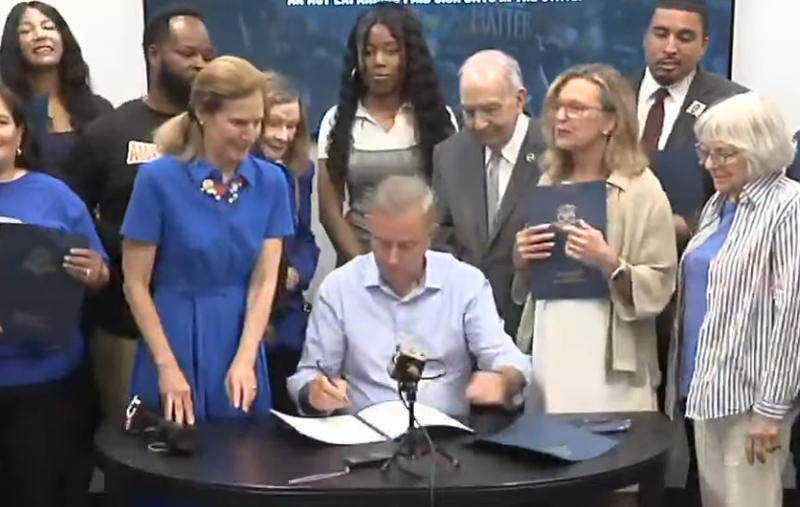
Joined by Democratic lawmakers and labor activists in New Haven, Gov. Ned Lamont (D) signed an expansion of Connecticut’s paid sick leave law.
The plan will be phased in until it covers virtually all workers in the state. Under the state’s 2011 law, five paid sick days per year have been available to workers at companies with 50 or more employees. That threshold will drop to 25 or more in 2025, to 11 or more in 2026 and to 1 in 2027.
State lawmakers recently passed the plan on a party-line basis. Lamont rejects Republican complaints that it’s bad for small business, saying, “I think you told me the same thing about the minimum wage. I think you told me the same thing about paid family and medical leave, and I want you to know that we’ve had more economic growth, more opportunities, more start-ups, more start-ups of small businesses with women and women of color ever before in the history of the state.”
Advocates say workplaces will be healthier because ailing workers will be less likely to go to work and spread disease.
“We know that workers are dragging themselves to work,” says state Senate President Martin Looney (D-New Haven), “because if you’re a low-income worker the loss of a day’s pay can be really stressful. It can mean the difference between being short on your rent at the end of the month or being short on a car payment.”
The bill also ensures that more employees will be protected from being retaliated against for seeking time off for an illness.
“It’s about humanity, and I think that always comes first,” says state Sen. Julie Kushner (D-Danbury). “But it’s also about making sure that people have their jobs protected. Of course, the pay is important, but people didn’t even have job protection before this, if they were out sick for a day or two, or three.”
State Senate Minority Leader Stephen Harding (R-Brookfield) and state Sen. Rob Sampson (R-Wolcott) recently criticized the bill, saying, “This will hurt employers and employees by eliminating their ability to negotiate employment terms themselves. Rather than nurturing our small mom and pop businesses, this onerous mandate does just the opposite.”
